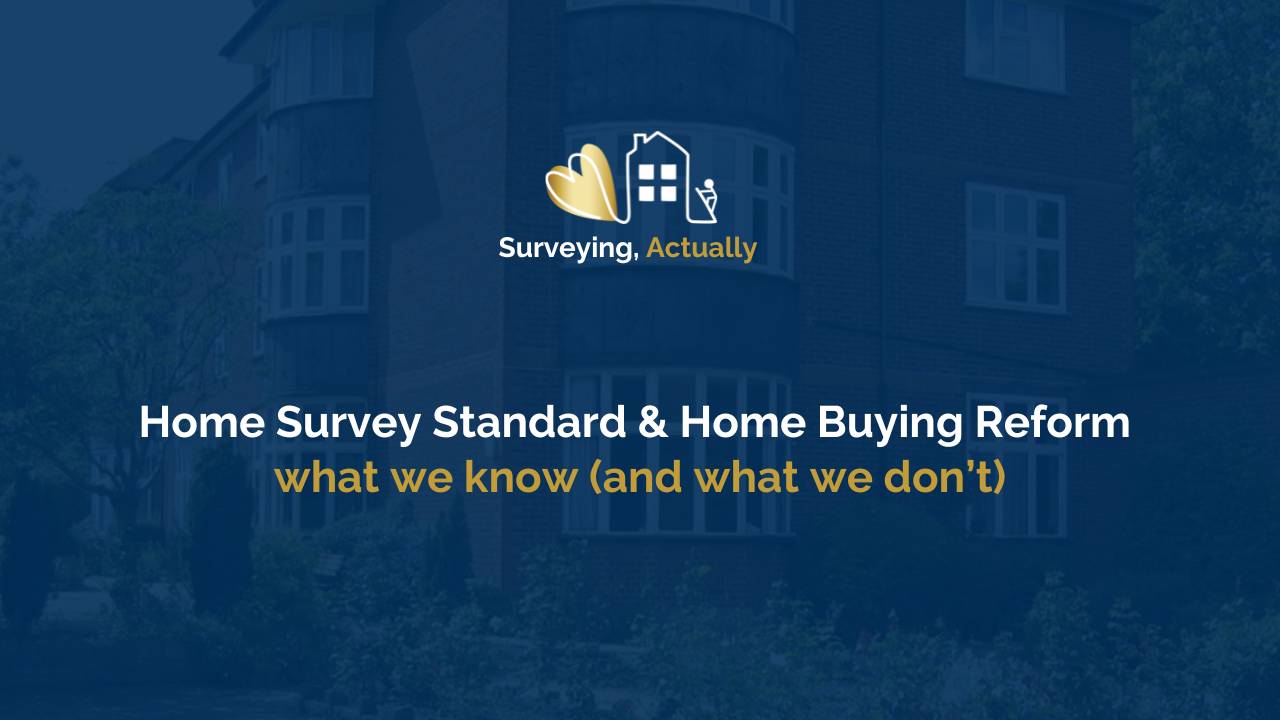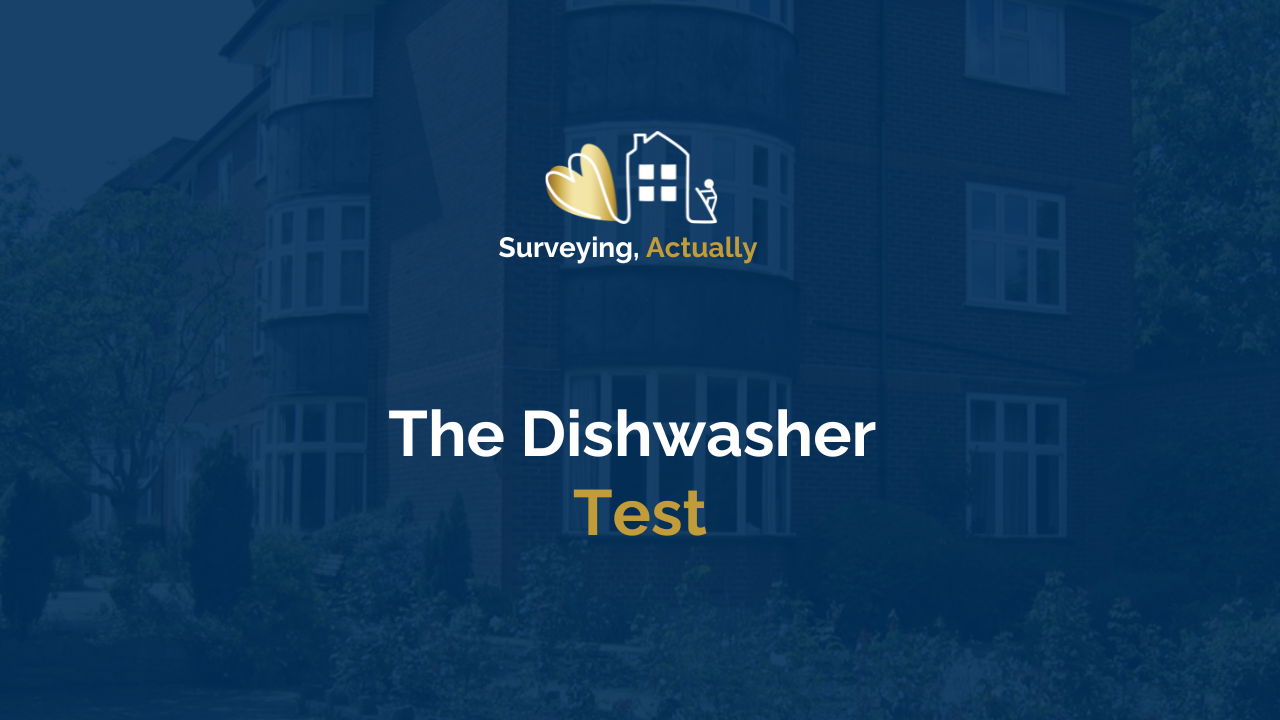How To Choose Report-Writing Software For Your Surveying Business
Dec 29, 2023
One of the most popular questions we are asked, and which is often debated in the SurveyorHub, is which is the best report-writing software for surveyors.
Helpfully, I've collated this list for you; unhelpfully, I’m afraid the answer is - it depends, but I hope some of the points I’ve noted below give you a sense of direction so you can take some next steps.
As always, I have not been paid or sponsored to promote any of these companies, so if you do find this article helpful, please share it and show your support by leaving me a Google review, or you can Buy Me a Coffee.
Getting Started
Before investing in software, you must look at what you already have, what you use or don’t, and why. Yes, this is the boring part, but it is essential because you want to make the best decision for you and your surveying business and save yourself a massive headache as you transition and integrate any new system into your surveying business.
In my experience, surveyors rarely take the time to review the technology they already have access to or use. They don’t always ensure they have the training, adequate technical support, or standard operating procedures documenting what happens at each stage. That means they may not be making the most of the technology they have already invested in.
But we have all been there. We want to crack on with the work, and technology can be so intuitive these days that it is easy to get on with the job. Until things go wrong or we find we are being less productive despite our new tech, which is very annoying.
And I say invest because although some software platforms are more expensive than others, the truth is, any spend in your business should either make you money or provide you with more confidence. So, as well as considering the ‘cost’ of software, you also need to consider what it will enable you to do. This is why you must understand what you can and can't do already. Surveyors often focus on how they can do it all quicker and overlook security and accuracy, which, more than anything, can provide resilience and reassurance, especially if you want your business to be compliant with your professional body regulator.
Finally, before you get stuck in researching software, I’d recommend creating a process roadmap of what happens at each stage, from the first interaction with your client to the very end when you review the file for closure. This will help you ask better questions of software providers and also provide a checklist for how things might work in practice.
Size (of your business) Matters
The support you need as a sole surveying practitioner will differ from a business with more surveyors or if you have admin support. Hence, you need to know what is available and how scalable the technology is. That means zooming in and out. In the future, you may expand, recruit or even want to sell your business. You will, therefore, need to think about storage, maintenance and access to the system if you have any changes planned for the future. How easy is it to add new users, is there a cost, and will training be available?
If you don’t have dedicated admin support in your business, then the support provided by the software provider will be a critical part of the package and, in turn, the cost charged to you. There are two areas of support you might need. Firstly, the set-up and integration - how long will it take, and how long will the support be required? Ask specifically what support included covers; if it is not as hands-on as you think, you may want help.
Whatever you do, catch yourself if you fall into the ‘I can do it myself’ trap. Your time as a surveyor is precious, and it is often worth paying for expert help to get you set up correctly in the long run. Big corporates have people dedicated to managing projects so the business can continue as usual (often called BAU). Smaller firms are no different, so you must find the setup time or get the right help. If you don’t, it could take you much longer in the long run.
The second area of support is the day-to-day BAU of keeping your house in order. Many surveyors believe software and technology are a silver bullet to all of their admin challenges when, in reality, it is just a tool and needs maintenance. Keep on top of your tech, and any future changes will be much easier to navigate; however, things in your business will pan out.
Software and Formats
As a general rule, you will need:
- A way to record the information you collate during your site inspection - either a set of field notes or a piece of software which allows you to collate as you go along. Some of these will automatically populate the final report.
- A report format to present your inspection findings to your client - either as a template you can purchase and/or a piece of software you can use your chosen report template with to populate the fields.
Software providers helpfully give you a combination of the above, but you are not comparing like for like, which is why it is essential to understand what you need and what part each piece of tech or admin will play in supporting you in your work.
What it does mean is that you have a choice and are in control of how your reports are presented to your clients and how you can satisfy your professional indemnity insurance requirements. As a reminder, you must always meet your regulatory provider's requirements. It is not ok to blame the ‘tech’; you should always have a backup.
If you intend to produce a fully RICS-branded report, you will need an RICS Home Survey Licence. RICS branded home surveys are designed and constructed by RICS and directly support the Home Survey Standard with full RICS branding (logo, colour scheme, font etc.) To use this RICS product, members must pay the appropriate license fee. This grants free access to the RICS ProForms platform, where their reports are delivered, but you can also use their template with a range of selected software providers. Though the software provider requires an additional fee, online support, flexibility, and innovation are better. There is no obligation to provide RICS Branded Home Surveys if you are an RICS member, so there is no requirement to purchase a license, but as an RICS member, you must comply with the Home Survey Standard.
Basic Report Templates
Basic report templates are great for beginners, those starting or those who consider themselves old skool. They are cheap, cost-effective and can be used as a paper backup if the tech fails. Many surveyors use an iPad or a Remarkable and download the templates as PDFs, so a fresh report format is always available. You create your site notes in whichever format and then either type or dictate your notes into the report template.
Cheap and cheerful, both Foy and Andrew Dyke Home Survey Templates have been around for a while. They are worth the investment, whatever you ultimately choose to use. The ISVA has a suite of report templates available for exclusive use by its members. If you are an RICS member and run your own business, it is worth exploring membership to access the resources. Finally, RICS has its own report format, which can be accessed via ProForms. To use this report format, purchase a Home Survey Licence directly from RICS.
Whichever template you use, you must ensure it is an up-to-date format and meets your clients, not just your regulator's needs. It is your name on the report at the end of the day, and you who could be accountable if things go wrong.
Technology Options and Considerations
There are many firms offering surveyors software. These are the ones, in no particular order, commonly cited in The Surveyor Hub:
Most of these are RICS Tech Affiliate Partners, but not all of them are. RICS lists other software providers not suggested by any Hub members. Please note I am not associated with these firms, nor do I receive a referral payment.
Always remember that these are tools only. You control how you record your notes, what you record, and how much time you feel you need to reflect on what you have seen and decide what and how to report to your client.
Choosing the Right Software Platform
There are several important considerations for you to think about. Here are some key points to keep in mind:
Trial Periods and Demo: See if you can get a demo not just of the software but from another surveyor using it in real life. This can help you put the software into context for your business. A trial period can also help before you invest, but make sure you properly road-test it.
Reputation: What about the firm's reputation ethics, and how do they support the surveying community? This can tell you a lot about how customer-led they are - are they listening to surveyors' needs and user experience, or will you be led down the path of what is easier for them to deliver? You may also like to listen to some podcasts, including Gavin O’Neil at GoReport and Ian Bullock at Surventrix.
Business Continuity: How long have they been in business, and what happens if the software or the business fails? You can’t predict what might happen, and a new business does not mean it is a bad business, but you and they must have a business continuity plan in place for when things go wrong.
Compatibility and Integration: Ensure the software works with your current systems and easily integrates with other tools and platforms in your business.
Scalability: Can software scale with your business or project needs? It should be able to handle increased workloads or expansion without significant changes.
User Experience: The software's ease of use and intuitiveness is crucial. If it is frustrating, you will not use it well, and if you have to focus too much on the tool, it will distract you from doing the job at hand. It should have a user-friendly interface and be accessible to all intended users.
Off the shelf or bespoke? Can the software be altered to fit your specific needs? Does it allow for accessibility features someone might need (and if not, why)? Flexibility in configuration and customisation is essential for adapting the platform to your processes.
Security and Compliance: Does the software have robust security protocols to protect sensitive data and comply with relevant regulations, and is your professional indemnity provider happy with you using it? Ensure the software complies with industry standards and legal requirements pertinent to your sector. The RICS website details Tech Affiliate Partners offering home survey reporting software, but it is not up to date - double check with any organisation you are considering as part of your due diligence as to why this is.
Support and Maintenance: Ask what they offer, do your due diligence, and ask others what they need additional support. Ask about additional costs in the customer support and maintenance services level. Reliable technical support and regular updates are essential for smooth operation.
Cost-effectiveness: If you have done the groundwork, it will be easier to work out and consider the total cost of investing in the technology, including initial costs, subscription fees, maintenance costs, and additional expenses for updates or add-ons. Remember, you may need to purchase a new tablet and learn how to use that, too.
Performance and Reliability: Regular updates are a good sign, but less so if they involve downtime, just as you need to get your report out. Downtime and performance issues can significantly impact operations. The software should be reliable and perform efficiently under various conditions. If it doesn’t, what comeback do you have against the company?
Data Management and Analytics: Does the software let you get on with the job, or will it also allow you to manage data and understand what and how you use it?
Future Roadmap: Understanding the future development plans for the software can give an idea of its longevity and how it may evolve to continue meeting your needs. A promising sign is to notice those who talk about their technical innovations and those who understand what might be coming around the corner and how it might affect you as a surveyor.
Exit Strategy: Understand how to move away from the software, including data export capabilities and contract termination clauses. Becuase sometimes, things change or don't work out.
However you decide to move forward, creating a plan and getting the proper support can help because it is often about something other than technology; it is how you, as a person and a business owner, approach technology in your business, and it is something I have supported many surveyors with on the Love Surveying Mastermind which you can find out more about here.
Enjoy this article? You might also like Unleashing the Power of Motivational Maps for Surveyors in Business
Find this content helpful? I'd love to hear your suggestions and recommendations. If you found this article helpful, please share it and show your support by leaving me a Google review, or you can Buy Me a Coffee. Being a small business just like you, it makes all the difference.





